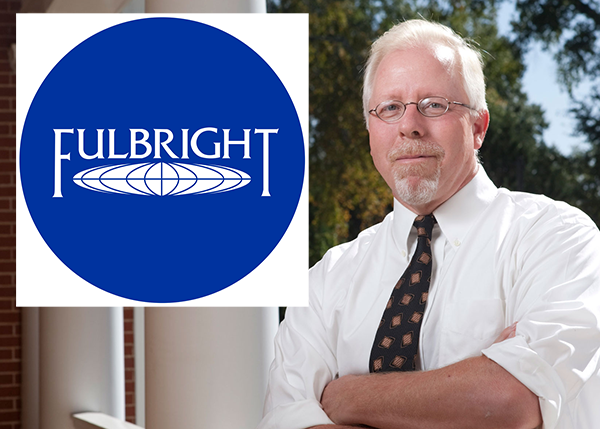Mark Ebell joins a growing number of faculty at the University of Georgia to be named a Fulbright scholar. In 2017, the university was named a top producer of Fulbright scholars and has contributed 35 faculty scholars to the program since 2011.
A family physician by training, Ebell studies clinical decision-making at UGA’s College of Public Health, most recently developing clinical decision rules for influenza and bacterial sinus infections. He also recently received a $2.4 million federal grant to study acute respiratory infections in the primary care setting.
As a Fulbright scholar, he will expand his research into testing the accuracy of existing clinical decision rules with colleagues in Dublin at the Royal College of Surgeons in Ireland (RCSI) beginning in February 2019.
Clinical decision rules are tools designed to help physicians make decisions about a patient’s diagnosis or treatment, incorporating information from the patient history, the physical exam and basic lab tests. These rules then guide the next steps in patient care.
“It’s recommended that physicians use tools like this to make their diagnosis more accurate and to reduce inappropriate ordering of tests that maybe aren’t needed,” said Ebell.
These rules are derived from individual research studies, and as studies accumulate, it strengthens the accuracy of the rule. Ebell is interested in how to combine multiple studies into a meta-analysis. It’s a statistical challenge.
“Many of these rules classify patients as being low, moderate or high risk for, and the meta-analysis methods only work when you have two categories,” he explained, “so people end up collapsing the categories, and when you do that you lose information.”
Ebell and RCSI colleague Tom Fahey have adapted some statistical methods to create a way of combining tests when there are more than two categories, and they plan to apply their methodology to various clinical decision rules for cancer screening and early diagnosis of cancer.
“Tom Fahey and I, particularly in the world of general practice, share an interest in the meta-analysis of clinical decision rules, as well as an interest the study of respiratory infections and cancer screening” said Ebell. “I’m looking forward to being there and working with his team,” he said.
Students at RCSI will benefit from Ebell’s expertise as well. In addition to research, he will also be designing learning modules around evidence-based medicine and cancer screening.
“I was on the U.S. Preventive Services Task Force for four years and learned a lot about cancer screening, the potential benefits but also the potential harms,” he said, “so we’re going to be developing some modules for the students to learn more about these topics.”
In general, he says, clinical decisions rules are helpful training tools for medical students and newer physicians because they ask doctors to think through the most important symptoms to pay attention to when making a diagnosis.
Ebell will work and teach in Ireland through May 2019.
The Fulbright Program is the U.S. government’s flagship international educational exchange program. Since its inception in 1946, it has provided more than 370,000 participants-chosen for their academic merit and leadership potential-with the opportunity to exchange ideas and contribute to finding solutions to shared international concerns.
– Lauren Baggett
Additional coverage in the Aug. 31, 2018 issue of the ASPPH Friday Letter.
Posted on August 14, 2018.







